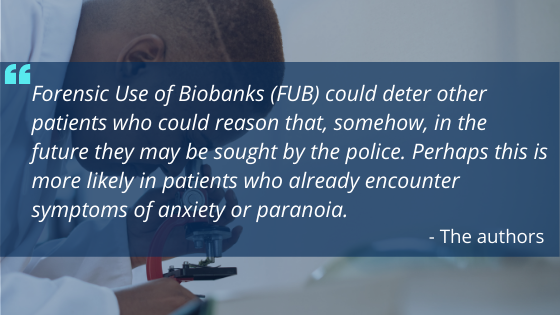In an international survey on genomics, it was found that less than half of the participants would share their DNA for research and medical purposes, citing trust as a major factor in their decision. But what if that decision wasn’t left up to the individual? What if they visited their doctor for a medical issue, only to have law enforcement seize their biological sample years later for an investigation?
That’s what happened to the daughter of Dennis Rader, the BTK killer. And while the significance of getting Rader off the streets and into prison cannot be understated, was it ethical to do so by seizing his daughter’s biological material, kept in a university clinic she visited for cervical cancer screening?

That’s one question of many author Nina de Groot and colleagues address in their essay “Accessing medical biobanks to solve crimes: ethical considerations,” published in the Journal of Medical Ethics. The authors, a multidisciplinary team from the University of Amsterdam, explore the ethics of law enforcement access to biobanks through the lenses of confidentiality, trust, autonomy, and justice.
Click here to read more.
